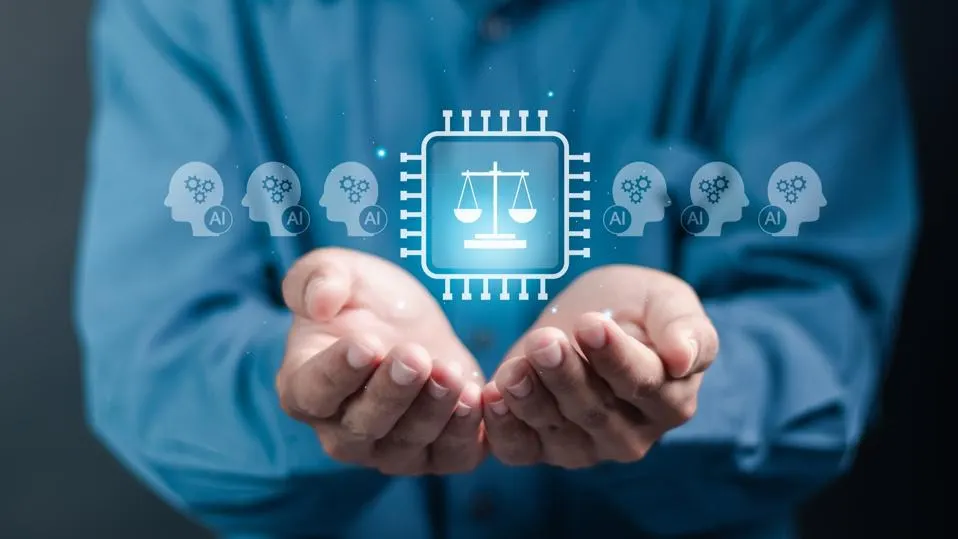How Generative AI Will Change Jobs In Customer Support
19 August 2024
Since generative AI exploded onto the scene with the release of ChatGPT (still less than two years ago, unbelievably), we’ve seen that it has the potential to impact many jobs.
Perhaps one that will most obviously be affected is customer support. After all, chatbots are a flagship use case for generative AI, and the process of transitioning from human agents to automated systems began long before the emergence of language models (LLMs).
Does this mean everyone working in the field should be looking for new jobs, as the days of humans staffing customer support lines and helpdesks are numbered?
I don’t think so. A report by Harvard Business Review found that of 13 essential tasks involved in customer support and customer service, just four of them could be fully automated, while five could be augmented by AI to help humans work more effectively.
So, let’s explore the ways in which I believe the day-to-day work of customer support agents will be disrupted. I’ll also take a look at how professionals in the field can adapt to ensure they stay relevant in the AI-powered business landscape of the near future.

The Role Of Generative AI In Customer Support
Perhaps one of the most obvious applications – and certainly one we’re seeing enthusiastic adoption of – is chatbots. In the past, most of us will probably have experienced the frustration of dealing with slow, clumsy and far-from-intelligent voice recognition and automated customer support technology. Today, thanks to the application of chatbots built on LLMs, bots can have conversations that are close to being as dynamic and flexible as those of humans.
This means that we will increasingly see them used to deal with routine inquiries. However, they will also become capable of providing personalized and instant responses across many more in-depth and edge-case customer support situations. This will free human agents up to spend time on cases that require a human touch. This might be those needing case-specific knowledge not found in data the AI can access, multi-faceted problems or those that require input and collaboration from different departments.
Generative AI can also be used to build and maintain support knowledge bases. They can be continuously kept up-to-date with the latest developments in best practices so that human agents will always have access to the most current information and insights.
It’s also great at sentiment analytics. In a support context, this means it can quickly analyze large volumes of tickets or inquiries, categorizing them according to the sentiment of the customer. This could even take place in real-time, for example, by guiding human agents on how to respond during person-to-person interactions.
Generative AI can also be used to draft automated but personalized responses to email inquiries, making sure that messages carry a consistent tone while providing customers with advice relevant to their specific issues.
As we move forward, we can also expect to see even more advanced applications.
Predictive customer support will focus on solving customer issues before they are even raised. This could involve automating warnings, messages or prompts to install updates based on alerts from other AI agents working elsewhere in the business. For example, if a number of users are having difficulty accessing a service, then other users who are likely to want to use the service could be warned beforehand, enabling them to make alternative arrangements. Ultimately, this will reduce the chance of losing customers due to poor support experiences.
How Can Customer Support Professionals Stay Relevant?
I don’t believe that we will immediately see mass human redundancy across customer support roles. After all, people will always be required to cope with unexpected and unique challenges that always occur. I do, however, believe that professionals in the field who prepare themselves for the AI revolution will increase their chances of remaining useful and valued.
While AI will take some jobs, new jobs will emerge. There will be opportunities for customer support professionals who want to transition into new positions, such as AI trainers, who improve the quality of automated responses, and AI-human collaboration specialists, who will manage the integration of AI into human workforces.
This will involve staying up-to-date with the latest developments in workplace trends and AI technology, as well as adopting a habit of continuous learning and upskilling.
More value will also be placed on those who show themselves to be adept at human, soft skills that machines don’t yet have a good understanding of. These include emotional intelligence, empathy, and complex problem-solving – all core skills in customer support.
On the flip side, showing that you are capable of collaborating with AI and using it to augment your ability to carry out routine everyday tasks more quickly and efficiently will also make you valuable.
Overall, I believe that the secret to success is to learn to treat AI as both a tool and as a partner. Rather than attempting to compete with it in order to stay relevant, learn how and when it can be used to boost your own efficiency and productivity. And focus on developing human skills that AI can’t replicate when it comes to solving customer problems and improving customer experience.
Related Articles
Will AI Solve The World’s Inequality Problem – Or Make It Worse?
We are standing on the cusp of a new technological revolution. AI is increasingly permeating every aspect of our lives, with intelligent machines transforming the way we live and work.[...]
How You Become Irreplaceable In The Age Of AI
In a world where artificial intelligence is rapidly advancing, many of us are left wondering: Will AI take our jobs?[...]
Why Apple Intelligence Sets A New Gold Standard For AI Privacy
In the rapidly evolving world of artificial intelligence, privacy concerns have become a hot-button issue.[...]
Can Your Device Run Apple Intelligence? What You Need To Know
Apple's announcement of Apple Intelligence has sent waves of excitement through the tech world.[...]
10 Amazing Things You Can Do With Apple Intelligence On Your IPhone
Apple Intelligence is poised to revolutionize the iPhone experience, offering a suite of AI-powered tools that promise to make your digital life easier, more productive, and more creative.[...]
Agentic AI: The Next Big Breakthrough That’s Transforming Business And Technology
The world of artificial intelligence is evolving at a breakneck pace, and just when you thought you'd wrapped your head around generative AI, along comes another game-changing concept: agentic AI.[...]
Sign up to Stay in Touch!
Bernard Marr is a world-renowned futurist, influencer and thought leader in the fields of business and technology, with a passion for using technology for the good of humanity.
He is a best-selling author of over 20 books, writes a regular column for Forbes and advises and coaches many of the world’s best-known organisations.
He has a combined following of 4 million people across his social media channels and newsletters and was ranked by LinkedIn as one of the top 5 business influencers in the world.
Bernard’s latest book is ‘Generative AI in Practice’.










Social Media